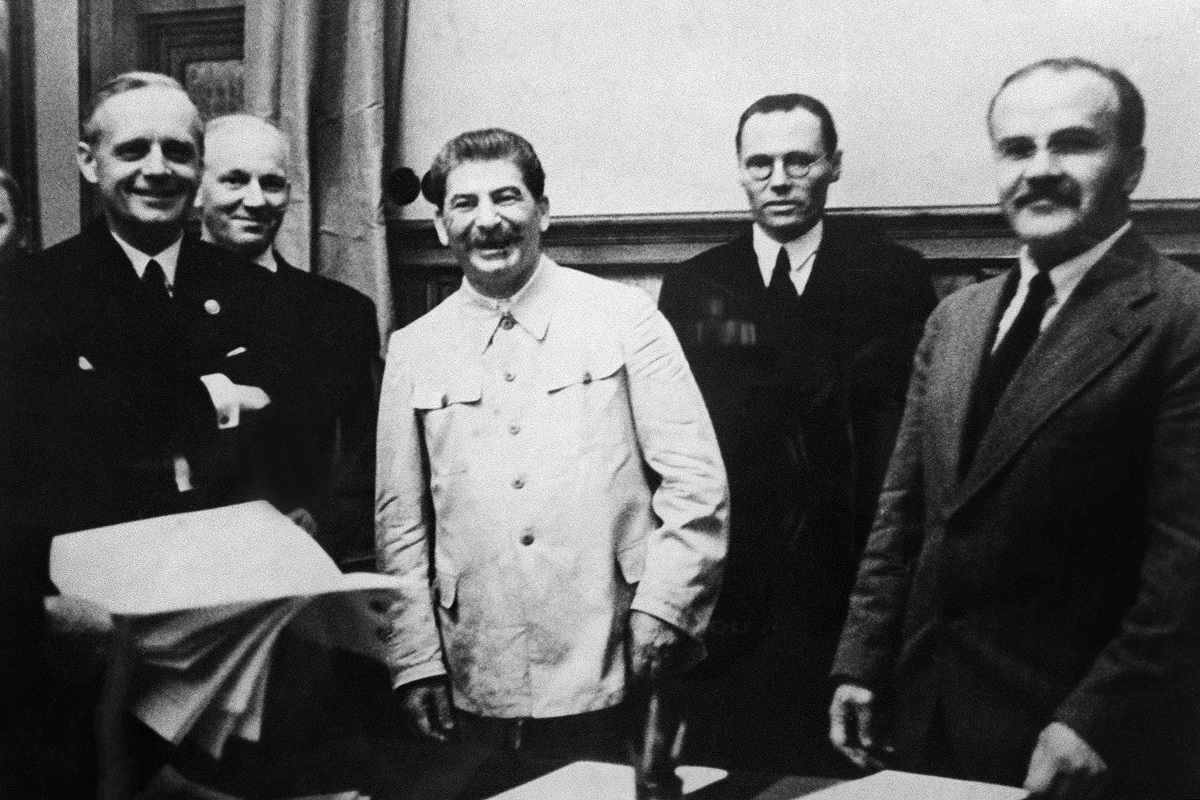The Soviet victory over Nazi Germany in 1945 is a pillar of national pride in Russia, used by the Kremlin to stir patriotic sentiment and rebuff criticism of the USSR and its army.
Yet Russia’s state-backed narratives about the war and its legacy regularly lead to disagreements with other European countries.
Advertisement
Russia celebrates its victory in World War II every year on May 9 with a massive military parade on Red Square in front of the president and other world leaders.
Ahead of this year’s parade on Wednesday, postponed from May because of the coronavirus pandemic, here are five World War II episodes that continue to fuel tensions.
Pact with Hitler
The 1939 Molotov-Ribbentrop pact between Soviet leader Joseph Stalin and Nazi leader Adolf Hitler remains a point of contention between Moscow and European countries to this day.
World War II erupted after Nazi Germany and the Soviet Union invaded and carved up Poland in September 1939 under a secret clause of the pact.
The agreement, which remained classified in the Soviet Union until 1989, has been described by Putin as necessary because Western powers had abandoned the USSR to face Germany alone.
He has also lauded the pact as a triumph of Stalin-era diplomacy.
Putin was angered last year by a text published by the European Parliament saying the pact helped pave the way for World War II.
Invasion or liberation?
Soviet soldiers are celebrated in Russia for liberating Europe from Nazism, but for some countries in eastern Europe the Red Army is remembered as an occupying force.
The Baltic countries of Estonia, Latvia and Lithuania were forcibly integrated into the Soviet Union, and revile Nazi and Soviet forces alike.
Lithuanian President Gitanas Nauseda said last month that the war did not end until 1993 “when the last Russian soldier left” his country.
Russia says this narrative is an unacceptable rewriting of history and routinely protests at the removal of Soviet-era military monuments in eastern and central Europe.
Polish massacre
One of many points of friction with Poland is the massacre at Katyn, named after a forest near the Russian city of Smolensk where Soviet secret police shot thousands of Polish officers in 1940 on Stalin’s orders.
Until 1990, the Soviet Union claimed the executions were carried out by the Nazis.
Moscow has since admitted responsibility, but the legacy of the massacre has been overshadowed in Russia by wider Stalinist repressions.
In 2010, during a thaw in relations between Moscow and Warsaw, the plane carrying Poland’s president to a commemorative event in Smolensk crashed, killing all 96 people on board.
Investigations into the accident have become a new source of tension between the two countries.
Mass deportations
During the war, Stalin accused minority ethnic groups of collaborating with the Nazis and deported hundreds of thousands of Crimean Tatars, Kalmyks, Chechens, Balkars, Germans and others to Central Asia in harsh conditions.
Deported populations were rehabilitated after Stalin’s death, but tensions linger with those that returned.
Crimean Tatars, for instance, were deported from their homes and as a result opposed Russia’s annexation of the Crimea peninsula from Ukraine in 2014.
Many Soviet soldiers and officers returning home after captivity in Germany were also likened to traitors and sent to forced labour camps.
Rape in Germany
Rapes committed by Soviet soldiers as they captured Berlin in April 1945 permeated German collective memory, but are largely overlooked in Russia.
A Russian blogger in January was charged with “Nazi apologism” for satirical social media posts that referenced Soviet abuses committed in Germany.
In 2016, a newspaper in the Russian enclave of Kaliningrad was handed an official warning over an article about atrocities committed by the Red Army during the takeover of the German city in 1945.











